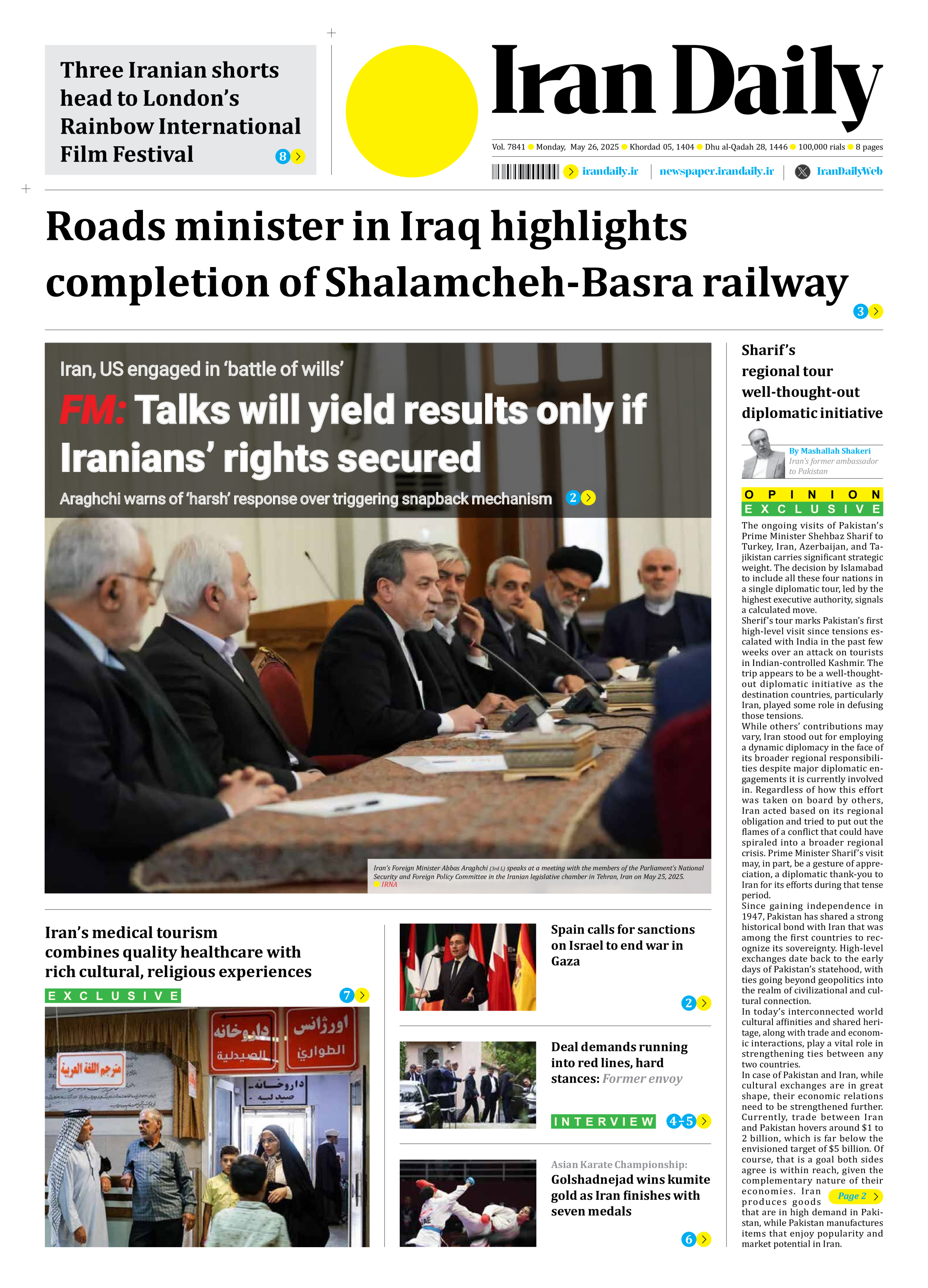
Sharif’s regional tour well-thought-out diplomatic initiative
By Mashallah Shakeri
Iran’s former ambassador to Pakistan
The ongoing visits of Pakistan’s Prime Minister Shehbaz Sharif to Turkey, Iran, Azerbaijan, and Tajikistan carries significant strategic weight. The decision by Islamabad to include all these four nations in a single diplomatic tour, led by the highest executive authority, signals a calculated move.
Sherif’s tour marks Pakistan’s first high-level visit since tensions escalated with India in the past few weeks over an attack on tourists in Indian-controlled Kashmir. The trip appears to be a well-thought-out diplomatic initiative as the destination countries, particularly Iran, played some role in defusing those tensions.
While others’ contributions may vary, Iran stood out for employing a dynamic diplomacy in the face of its broader regional responsibilities despite major diplomatic engagements it is currently involved in. Regardless of how this effort was taken on board by others, Iran acted based on its regional obligation and tried to put out the flames of a conflict that could have spiraled into a broader regional crisis. Prime Minister Sharif’s visit may, in part, be a gesture of appreciation, a diplomatic thank-you to Iran for its efforts during that tense period.
Since gaining independence in 1947, Pakistan has shared a strong historical bond with Iran that was among the first countries to recognize its sovereignty. High-level exchanges date back to the early days of Pakistan’s statehood, with ties going beyond geopolitics into the realm of civilizational and cultural connection.
In today’s interconnected world cultural affinities and shared heritage, along with trade and economic interactions, play a vital role in strengthening ties between any two countries.
In case of Pakistan and Iran, while cultural exchanges are in great shape, their economic relations need to be strengthened further. Currently, trade between Iran and Pakistan hovers around $1 to 2 billion, which is far below the envisioned target of $5 billion. Of course, that is a goal both sides agree is within reach, given the complementary nature of their economies. Iran produces goods that are in high demand in Pakistan, while Pakistan manufactures items that enjoy popularity and market potential in Iran.
Page 2







